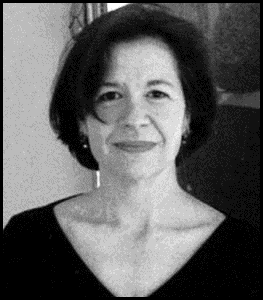Putting My Father's Death in Order
Joan Wickersham
(Mariner)

Who was to blame? The creditors? (Some large debts were coming due.) The grandfather? (Paul was beaten, spectacularly so, when he was growing up.) Sickness? (In his sixty-one years, he had had "Kidney stones. Gallstones. Pneumonia. Appendicitis. Pericarditis. Diverticulitis. Ulcerative colitis.") His wife and children?
Perhaps it can be blamed on his wife's boyfriend ... although the author is convinced that he was gay. Maybe it was because Paul failed at every business venture he tried. Or possibly it was his silence: Wickersham tells us he didn't confide in her, or her mother ("he never tells me anything") or, as far as they know, anyone else. Suicides, like murders, have many suspects. The local police tell Wickersham that they treat the two of them equally.
The Suicide Index, however, is not really an "Index." It is more like an extended suicide note ... put together by someone else. Beginning with his sudden exit, her father's self-imposed death takes over her life, her mother's life, and presumably, the lives of many others. The family and family friends may survive, but they seem to do so filled with vituperation. A minister, concerned, asks, "Do you think he might have been depressed?" Wickersham snaps, "Gee, I guess he must have been."
Bitterness is strewn along the road like trash at a mountain picnic spot. At the very end of the book, Wickersham writes that her father's suicide was "emphatic." She writes,
- If you want to say "fuck you," there's no louder way.
Most of the critics seem to think Suicide Index is a worthy work of art. Newsday, Chicago Tribune, Library Journal, Publishers Weekly, National Book Award Finalist, Washington Post Best Book, L. A. Times Favorite Book ... all weighed in on this story of the cruel end of a man who raised himself with dignity, loved Bach and Telemann, never --- apparently --- caused pain for anyone.
And years afterwards, the author can't leave it alone. She recalls, for instance, that towards the end of her father's life, there was a malignancy that turned up in his lungs.
- I think that, now, that he was sorry when the whole cancer thing turned out to be a false alarm. It would have been a good, sad death. He would have fought hard against the cancer and suffered a valiant defeat. He would have died in our arms.
Recently, she tells us, she wants to remind her son (he's ten years old) about his grandfather's death. "I kept it calm, and gentle, and rational," she reports. "He didn't look at me; he looked at his feet."
- I said, "He was a good man and I loved him, but he was sick in a way that no one really understood. I don't know why he did it, or even if something like that can have a reason."
She even asks him if he is going to "hurt" himself.
And the reader is thinking: it's poison, isn't it? Suicide envenoms everyone involved, in a very Old Testament way. It's a serial killer, killing you and your family over and over again.
"Every time I try to talk to you, you tell me what I say is wrong," says her mother.
- "Everything I feel is wrong. Maybe I should commit suicide, too, and then you wouldn't have to worry about me anymore."
After ten years, Wickersham talks to a psychiatrist about the whole scene ... shifting, as she does (when the going gets tough) to the second-person singular:
- One day you're talking about how for you, men are divided into two categories: the nice ones and the killers. "My father was one of the nice ones," you say, with a dreamy mixture of adoration and pity.
"Until he became a killer," your doctor says.